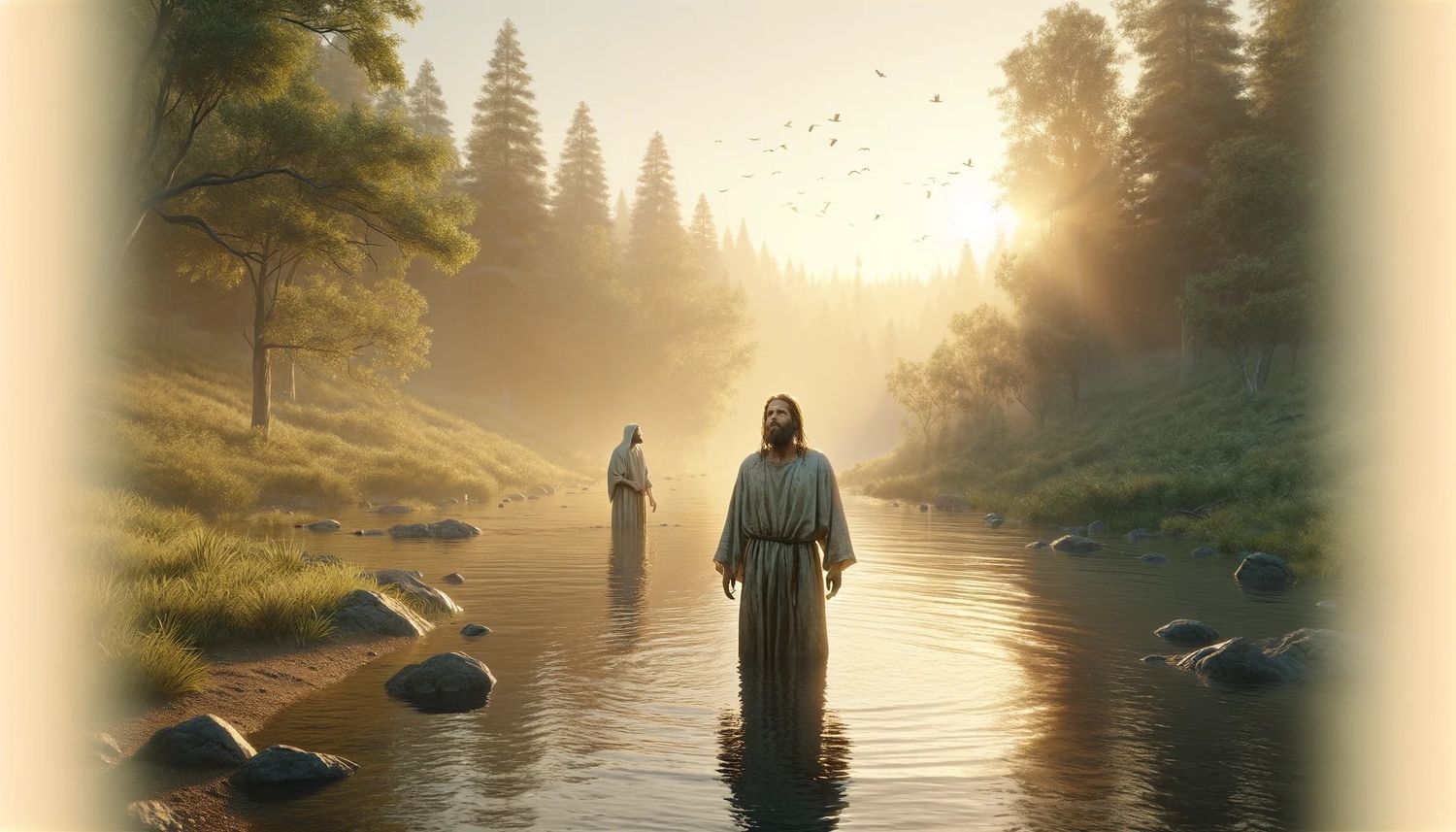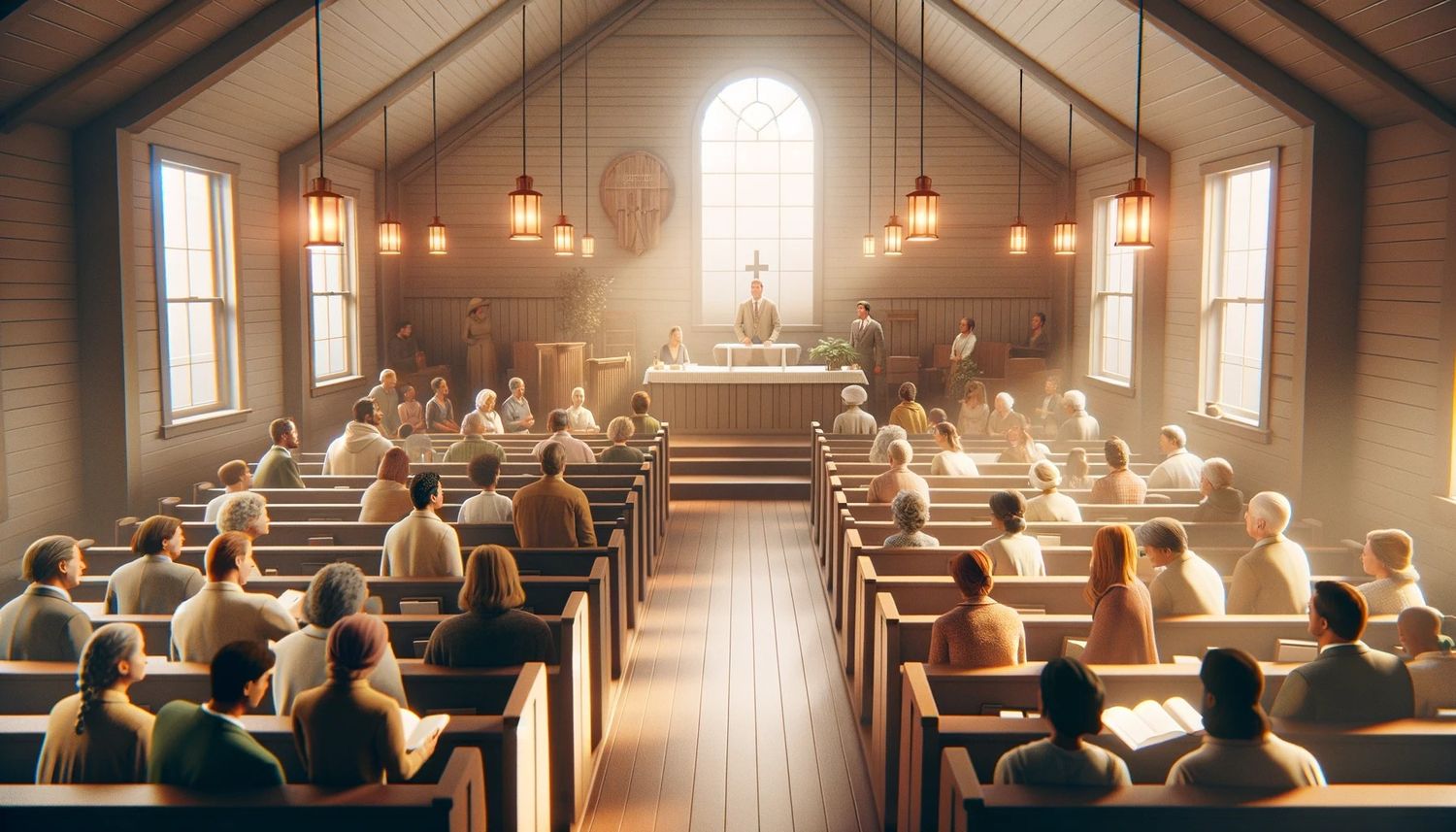Home>Theology and Spirituality>What Is The Baptist View On Armageddon


Theology and Spirituality
What Is The Baptist View On Armageddon
Published: February 21, 2024
Jason DeRose, Managing Editor at Christian.net, uses his expertise in religion and journalism to deepen understanding of faith's societal impacts. His editorial leadership, coupled with a strong academic background, enriches the platform’s diverse content, earning him recognition in both journalism and religious circles.
Discover the Baptist perspective on Armageddon and explore its significance in theology and spirituality. Learn about the beliefs and interpretations within the Baptist tradition.
(Many of the links in this article redirect to a specific reviewed product. Your purchase of these products through affiliate links helps to generate commission for Christian.net, at no extra cost. Learn more)
Table of Contents
Introduction
The concept of Armageddon has long captivated the human imagination, evoking images of cataclysmic battles and apocalyptic events. In theological and spiritual discourse, Armageddon holds a significant place, representing the final showdown between good and evil. Within the Baptist tradition, Armageddon is approached with deep theological reflection and scriptural interpretation, shaping their beliefs about the end times and the ultimate triumph of God's kingdom.
As we delve into the Baptist perspective on Armageddon, it is essential to understand the theological underpinnings that inform their beliefs. The Baptist tradition, rooted in the Protestant Reformation, emphasizes the authority of Scripture, the priesthood of all believers, and the autonomy of the local church. These foundational principles influence how Baptists interpret eschatological themes, including the much-debated topic of Armageddon.
In exploring the Baptist view on Armageddon, we will navigate through the scriptural basis for their beliefs, the nuanced understanding of the end times within Baptist theology, and the implications of Armageddon in shaping their worldview. By delving into these aspects, we can gain a comprehensive understanding of how Baptists perceive and interpret the climactic events associated with Armageddon, shedding light on their eschatological framework and the hope that undergirds their faith.
Read more: What Is The Lutheran View Of The End Times
Theological Background of Baptist Beliefs
The theological landscape of Baptist beliefs is characterized by distinct principles that have shaped their doctrinal framework and eschatological perspectives. At the heart of Baptist theology lies a commitment to the authority of Scripture, the priesthood of all believers, believer's baptism, and the autonomy of the local church. These foundational tenets, rooted in the Protestant Reformation, have significantly influenced the Baptist understanding of eschatology, including their views on Armageddon.
Central to Baptist theology is the principle of sola scriptura, emphasizing the supreme authority of the Bible in matters of faith and practice. Baptists hold that the Scriptures serve as the ultimate guide for understanding God's purposes and the culmination of human history, including the events surrounding Armageddon. This commitment to scriptural authority shapes their approach to interpreting eschatological passages, anchoring their beliefs in the teachings of the Bible.
Furthermore, the priesthood of all believers is a fundamental aspect of Baptist theology, affirming that every believer has direct access to God and shares in the responsibility of proclaiming the Gospel. This egalitarian view underscores the individual's role in discerning and grappling with eschatological themes, including the significance of Armageddon, within the broader framework of God's redemptive plan.
Believer's baptism, another hallmark of Baptist theology, symbolizes the believer's identification with Christ's death, burial, and resurrection. This ordinance signifies a personal commitment to Christ and the anticipation of His return, which inherently intersects with the Baptist understanding of the end times, including the climactic events associated with Armageddon.
Moreover, the autonomy of the local church, a distinctive feature of Baptist ecclesiology, underscores the independence and self-governance of each congregation. This autonomy extends to theological interpretation, allowing for diverse perspectives on eschatological themes, including the nature and timing of Armageddon, within the broader framework of Baptist beliefs.
In essence, the theological backdrop of Baptist beliefs, characterized by a commitment to scriptural authority, the priesthood of all believers, believer's baptism, and the autonomy of the local church, provides the foundational lens through which Baptists approach eschatological themes, including their perspectives on Armageddon. These theological underpinnings serve as the bedrock for understanding the Baptist worldview and their anticipation of the consummation of God's redemptive purposes in the culmination of human history.
Understanding Armageddon in Baptist Theology
In Baptist theology, the concept of Armageddon is intricately woven into the broader tapestry of eschatological beliefs, serving as a focal point in their understanding of the end times. Armageddon, derived from the Greek word "Har-Magedon," is often associated with the climactic battle between the forces of good and evil, ultimately culminating in the establishment of God's sovereign rule. Within the Baptist tradition, the interpretation of Armageddon is shaped by a deep reverence for scriptural authority and a nuanced understanding of eschatological themes.
Baptists approach Armageddon as a pivotal event within the broader eschatological framework, signifying the ultimate triumph of God's kingdom over the forces of darkness. This perspective is undergirded by a profound belief in the sovereignty of God and His redemptive purposes, as revealed in the Scriptures. The Baptist understanding of Armageddon is not merely confined to a singular cataclysmic battle but encompasses the overarching narrative of God's ultimate victory and the consummation of His redemptive plan for creation.
Moreover, within Baptist theology, Armageddon is viewed as a manifestation of divine justice and the fulfillment of God's promises, rather than a harbinger of fear and despair. This perspective reflects the Baptist emphasis on the redemptive nature of God's eschatological plan, wherein the events surrounding Armageddon are seen as the prelude to the restoration and renewal of all things, in accordance with God's sovereign will.
Furthermore, the Baptist understanding of Armageddon is characterized by a sense of hopeful anticipation rather than apprehension, as it signifies the imminent realization of God's kingdom in its fullness. This perspective engenders a profound sense of assurance and steadfast hope among Baptists, anchoring their faith in the certainty of God's ultimate victory over sin, death, and evil.
In essence, the Baptist theology of Armageddon reflects a deep-seated conviction in the sovereignty of God, the redemptive trajectory of human history, and the ultimate fulfillment of God's purposes. This understanding is intricately intertwined with their broader eschatological beliefs, shaping their anticipation of the consummation of God's redemptive plan and the establishment of His eternal kingdom.
Scriptural Basis for Baptist Views on Armageddon
The Baptist views on Armageddon are deeply rooted in a robust engagement with biblical passages that illuminate the eschatological landscape and the climactic events associated with the end times. Central to the scriptural basis for Baptist perspectives on Armageddon is the meticulous examination of prophetic texts, apocalyptic literature, and the teachings of Jesus and the apostles, all of which converge to shape their understanding of this pivotal eschatological event.
One of the primary scriptural references that underpin Baptist views on Armageddon is found in the book of Revelation, specifically in Revelation 16:16, where the term "Armageddon" is mentioned. This enigmatic passage depicts a gathering of the nations for battle at a place called Armageddon, signifying a cosmic confrontation between the forces of good and evil. Baptists engage in a careful exegetical study of this and other apocalyptic passages in Revelation, discerning the symbolic imagery and theological significance embedded within these texts.
Additionally, Baptist perspectives on Armageddon draw from the prophetic writings of the Old Testament, particularly the books of Daniel, Ezekiel, and Zechariah, which contain vivid depictions of eschatological events and the ultimate triumph of God's kingdom. These prophetic texts provide a rich tapestry of imagery and theological motifs that inform Baptist eschatology, including their understanding of the climactic battle at Armageddon and its implications for the consummation of God's redemptive purposes.
Furthermore, the teachings of Jesus and the apostles, as recorded in the Gospels and the epistles, offer profound insights into the eschatological framework that shapes Baptist views on Armageddon. The Olivet Discourse in Matthew 24 and the Pauline epistles, particularly the Thessalonian correspondence, provide key theological foundations for understanding the culmination of human history and the ultimate victory of Christ over the powers of darkness, themes that resonate deeply within Baptist eschatology.
In essence, the scriptural basis for Baptist views on Armageddon encompasses a comprehensive engagement with prophetic, apocalyptic, and theological texts, weaving together a tapestry of biblical imagery and theological motifs that undergird their understanding of this pivotal eschatological event. Through a meticulous study of these scriptural passages, Baptists discern the contours of God's redemptive plan and the ultimate triumph of His kingdom, anchoring their eschatological perspectives in the authoritative teachings of the Bible.
Baptist Perspectives on the End Times
Baptist perspectives on the end times are deeply rooted in a robust theological framework that encompasses the culmination of human history, the consummation of God's redemptive plan, and the ultimate establishment of His eternal kingdom. Within the Baptist tradition, the end times are viewed through the lens of hope, assurance, and the steadfast belief in the sovereignty of God over all creation.
Central to Baptist perspectives on the end times is the anticipation of Christ's return, often referred to as the Second Coming. This eschatological event is regarded as the focal point of human history, marking the fulfillment of God's redemptive purposes and the establishment of His eternal reign. Baptists approach the Second Coming with a sense of eager expectation, viewing it as the ultimate realization of God's kingdom and the consummation of His redemptive work in the world.
Moreover, within Baptist theology, the end times are characterized by a profound belief in the resurrection of the dead and the final judgment. This eschatological framework underscores the accountability of all humanity before God and the assurance of the ultimate vindication of the righteous and the defeat of evil. The concept of the final judgment is intricately woven into Baptist perspectives on the end times, reflecting a deep-seated conviction in the righteousness and justice of God as the ultimate arbiter of human destiny.
Furthermore, Baptists hold a nuanced understanding of the millennial reign, with interpretations ranging from premillennialism to amillennialism. This diversity of perspectives within Baptist eschatology reflects the autonomy of individual congregations in interpreting eschatological themes, while affirming the central belief in the ultimate triumph of God's kingdom and the restoration of all things in accordance with His sovereign will.
In essence, Baptist perspectives on the end times are characterized by a profound sense of hope, assurance, and eager anticipation of the fulfillment of God's redemptive plan. The end times, within the Baptist tradition, signify the ultimate triumph of God's kingdom, the vindication of the righteous, and the restoration of all creation under the sovereign rule of God. This eschatological framework shapes the worldview of Baptists, anchoring their faith in the certainty of God's ultimate victory and the consummation of His redemptive purposes in the culmination of human history.
Conclusion
In conclusion, the Baptist perspective on Armageddon is deeply rooted in a robust theological framework, shaped by a profound commitment to scriptural authority, the sovereignty of God, and the anticipation of the consummation of His redemptive purposes. Within the broader tapestry of Baptist beliefs, the concept of Armageddon serves as a focal point in their eschatological worldview, signifying the ultimate triumph of God's kingdom over the forces of darkness.
The theological underpinnings of Baptist beliefs, including the principles of sola scriptura, the priesthood of all believers, believer's baptism, and the autonomy of the local church, provide the foundational lens through which Baptists approach eschatological themes, including their perspectives on Armageddon. This theological backdrop underscores the deep reverence for scriptural authority and the autonomy of individual believers and congregations in discerning eschatological truths.
Furthermore, the Baptist understanding of Armageddon is characterized by a sense of hopeful anticipation, reflecting a steadfast belief in the ultimate victory of God and the restoration of all things in accordance with His sovereign will. Armageddon, within Baptist theology, is not merely confined to a singular cataclysmic battle but encompasses the overarching narrative of God's redemptive plan, culminating in the establishment of His eternal kingdom.
The scriptural basis for Baptist views on Armageddon is derived from a meticulous engagement with prophetic texts, apocalyptic literature, and the teachings of Jesus and the apostles, all of which converge to shape their understanding of this pivotal eschatological event. Through a comprehensive study of these scriptural passages, Baptists discern the contours of God's redemptive plan and the ultimate triumph of His kingdom, anchoring their eschatological perspectives in the authoritative teachings of the Bible.
In essence, the Baptist perspective on Armageddon reflects a deep-seated conviction in the sovereignty of God, the redemptive trajectory of human history, and the ultimate fulfillment of God's purposes. This understanding is intricately intertwined with their broader eschatological beliefs, shaping their anticipation of the consummation of God's redemptive plan and the establishment of His eternal kingdom.














